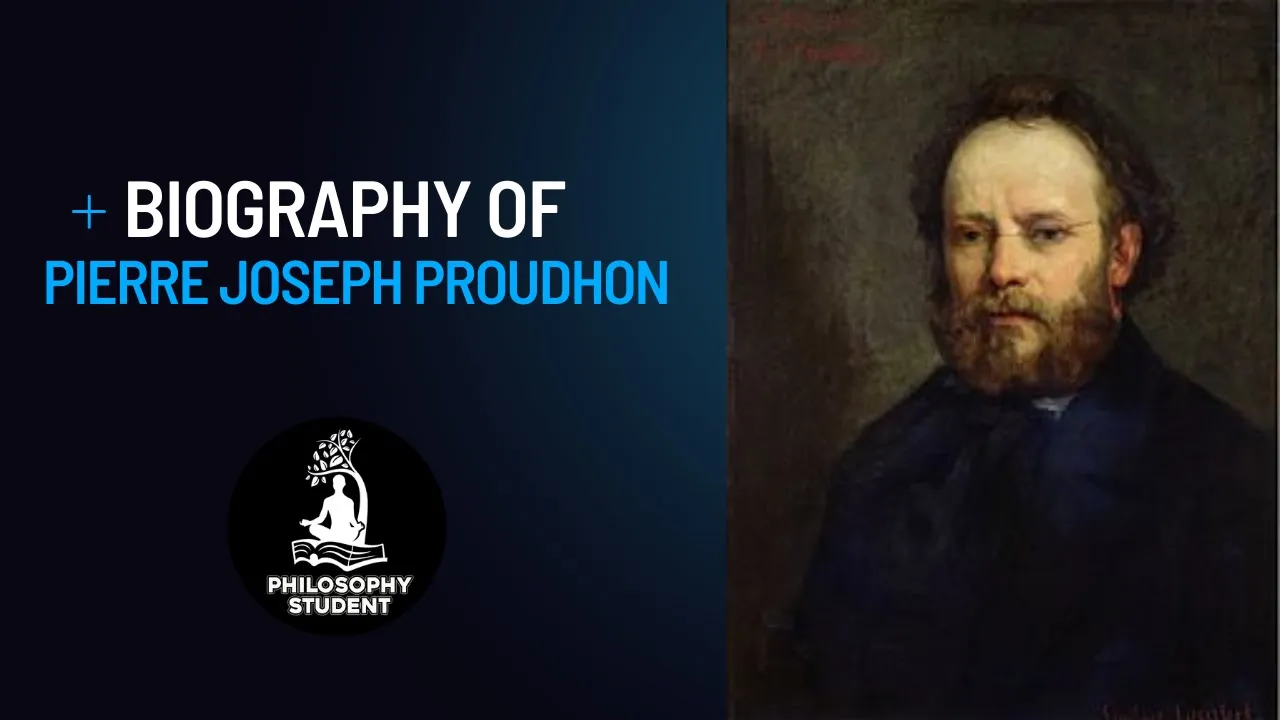Pierre-Joseph Proudhon was born on January 15, 1809 in Besançon, France. He gained enduring fame as the “father” of anarchism and was, in fact, the first person to use the term “anarchist” to describe himself. In terms of a fuller philosophy, he created a subset of anarchism he called mutualism, a form of socialism in which free markets exist with usufructs (the common ownership of property). Indeed, Proudhon is best known for the slogan, “Property is theft!” contained in his first book, What Is Property? Or, an Inquiry into
the Principle of Right and of Government (1840).
Proudhon was born into a working-class family, the son of a brewer and barrel maker. As a boy, he helped out in the family tavern. He did not attend school but was taught to read by his mother, who, with the aid of a friend, was eventually able to gain his admission to the city college of Besançon.
In 1827, Proudhon apprenticed to a printer, who printed mainly Christian books. Proudhon read them voraciously, which led to his ultimate rejection of Christianity and, in fact, all religion. He rose rapidly in the printing trade and, through this profession, met in 1829 the utopian philosopher Charles Fourier, the printing of whose Le Nouveau Monde Industriel et Sociétaire (The New World of Industry and Society) Proudhon oversaw. Inspired, Proudhon became increasingly interested in political philosophy.
In 1830, Proudhon qualified as a journeyman compositor but was unable to find steady employment. Gustave Fallot, a philologist and librarian who befriended Proudhon, offered to finance his further education if he came to Paris to study philosophy. After walking to Paris from Besançon, he moved in with Fallot in the Latin Quarter until a cholera outbreak forced him back to Besançon. He attempted to start his own printing business in 1838, failed, and applied for a special grant that financed study at the Academy of Besançon. The following year, he won a prize for an essay that adumbrated much of his mature revolutionary philosophy. In 1840 came What Is Property? And, in 1846, The System of Economic Contradictions, or The Philosophy of Poverty.
In the 1846 book, Proudhon claimed that economics could be understood only in the context of metaphysics, arguing that divinity is the core concept in Economics and that to study the laws of labor and exchange is to become a metaphysician. Economic science, he declared, “is necessarily a Theory of Knowledge, a Natural Theology, and a Psychology.”
Yet Proudhon resisted straying into the purely theoretical and worked toward the creation of workers’ associations and cooperatives as the practical means of implementing mutualism, the abolition of both private and government ownership of property and other capital assets in favor of these being shared jointly by peasants and workers themselves.
Proudhon played no role in instigating the Revolutions of 1848, but he did participate in the February Revolution in France. Disappointed by the outcome, he published in 1849 Solution of the Social Problem, which was a program of mutual financial cooperation among workers. His objective was to transfer control of major economic relations from capitalists to workers. Arguing that “Anarchy is order without power,” he sought to implement his philosophy by creating a French national bank funded by an income tax on capitalists. The bank would function to provide to the masses interest-free loans, using exchange notes in place of gold-based currency.
In the wake of the 1848 revolutions, during the Second French Republic (1848–1852), Proudhon made less impact as a philosopher than as a journalist and polemicist. In 1849, however, he was arrested for insulting President Louis-Napoléon Bonaparte and was incarcerated from 1849 to 1852. In 1858, he voluntarily exiled himself to Belgium, where he lived until 1863, when he returned to France. He died two years later, on January 19, 1865.




































